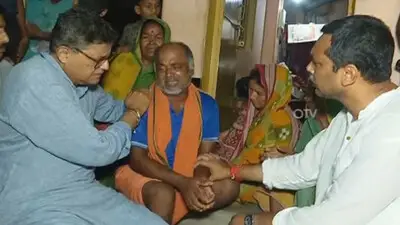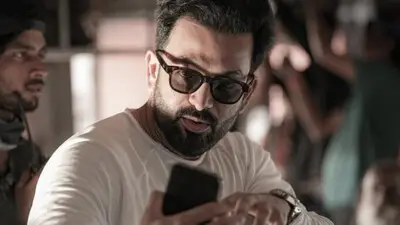Recommended Stories
An Indian delegation led by Home Secretary R K Singh met a Pakistani team led by Interior Secretary Khwaja Siddique Akbar at a hotel in the resort of Bhurban, about 70 km from Islamabad. Before the beginning of the talks, the Indian delegation called on Interior Minister Rehman Malik and discussed a wide range of issues, officials said.
During the first day of talks yesterday, the two sides took up a wide range of issues, including counter-terrorism, infiltration, drug trafficking, a relaxed visa regime, networks involved in circulating fake currency and humanitarian matters, including the release of civilian prisoners and fishermen held in jails in both countries.
At the conclusion of the talks yesterday, Home Secretary Singh said India had provided additional evidence against Lashkar-e-Taiba founder Hafiz Mohammad Saeed and the perpetrators of the Mumbai terror attacks that should be used by Pakistani authorities to prosecute them.
Indian authorities had provided their Pakistani counterparts additional proof linking Saeed to the Mumbai attacks while the Pakistani judicial commission that visited Mumbai in March had gathered evidence against the perpetrators of the terrorist assault on India?s financial hub, Singh said.
The additional evidence should be presented in Pakistani courts and used to prosecute the terror suspects. At the same time, Singh said the Mumbai attacks should not be equated with the 2007 bombing of the Samjhuata Express train. However, their trial by an anti-terrorism court in Rawalpindi has stalled for over a year due to various technical reasons.
Indian officials have said the Pakistani side has not acted on evidence provided by New Delhi that linked several serving and retired military personnel to the attacks. Islamabad has also not responded to New Delhi`s request for voice samples of the seven suspects arrested in Pakistan.
India`s demand for action against Hafiz Saeed was strengthened after the US recently offered a 10 million-dollar bounty for the LeT founder.
Islamabad has claimed that the evidence provided by New Delhi is not sufficient to take legal action against Saeed, who has led several massive rallies against the US and India in recent months.
The last round of talks between the two secretaries was held in New Delhi in March last year. The assault on Mumbai was an incident of cross-border terrorism while the train bombing had occurred within India, Singh pointed out. Indian authorities had arrested and charge-sheeted those responsible for the bombing of the train, Singh said.
Singh had also expressed concern at the tardy prosecution of the perpetrators of the Mumbai attacks.
"It seems that the progress in judicial proceedings against them (persons charged with involvement in the Mumbai incident) is very slow. Many persons who are the actual accused have not been brought before the courts," Singh told reporters.
The Indian side had also demanded the handing over of fugitives allegedly sheltering in Pakistan, including underworld don Dawood Ibrahim and several Indian Mujahideen leaders, sources said.
The Pakistani side raised the issue of action against those responsible for the bombing of the Samjhauta Express, which killed nearly 70 people, including 42 Pakistanis.
Interior Secretary Akbar said the Indian side had also raised the issue of death row prisoner Sarabjit Singh though the matter would be decided in line with Pakistani laws. Singh was convicted of alleged involvement in bomb blasts in 1990 though his execution has been indefinitely put off by the Pakistan government.
The inclusion of National Investigation Agency chief S C Sinha and other officials involved in the probe of the Mumbai attacks in the Indian delegation was a clear indication of New Delhi`s intention to push for the prosecution of the perpetrators of the terrorist assault.
Seven Pakistani nationals, including LeT operations commander Zakiur Rehman Lakhvi, have been indicted for planning, financing and facilitating the deadly attacks that killed 166 people in November 2008.












